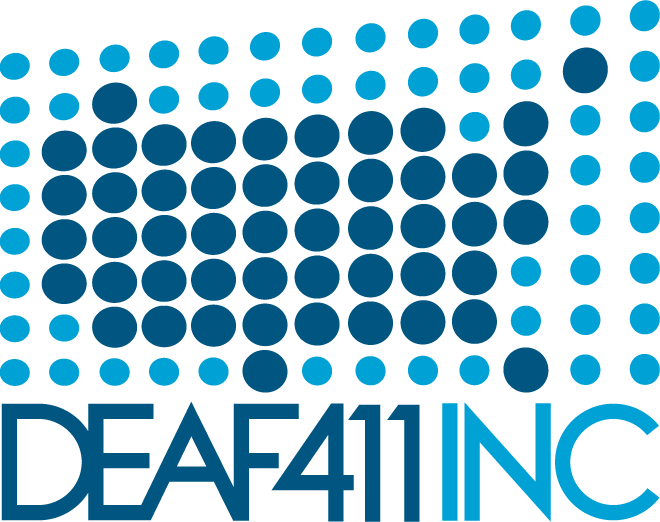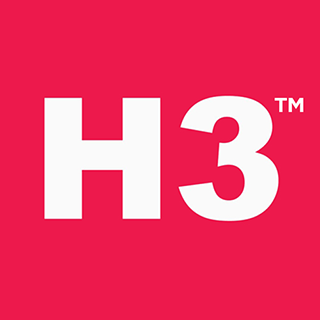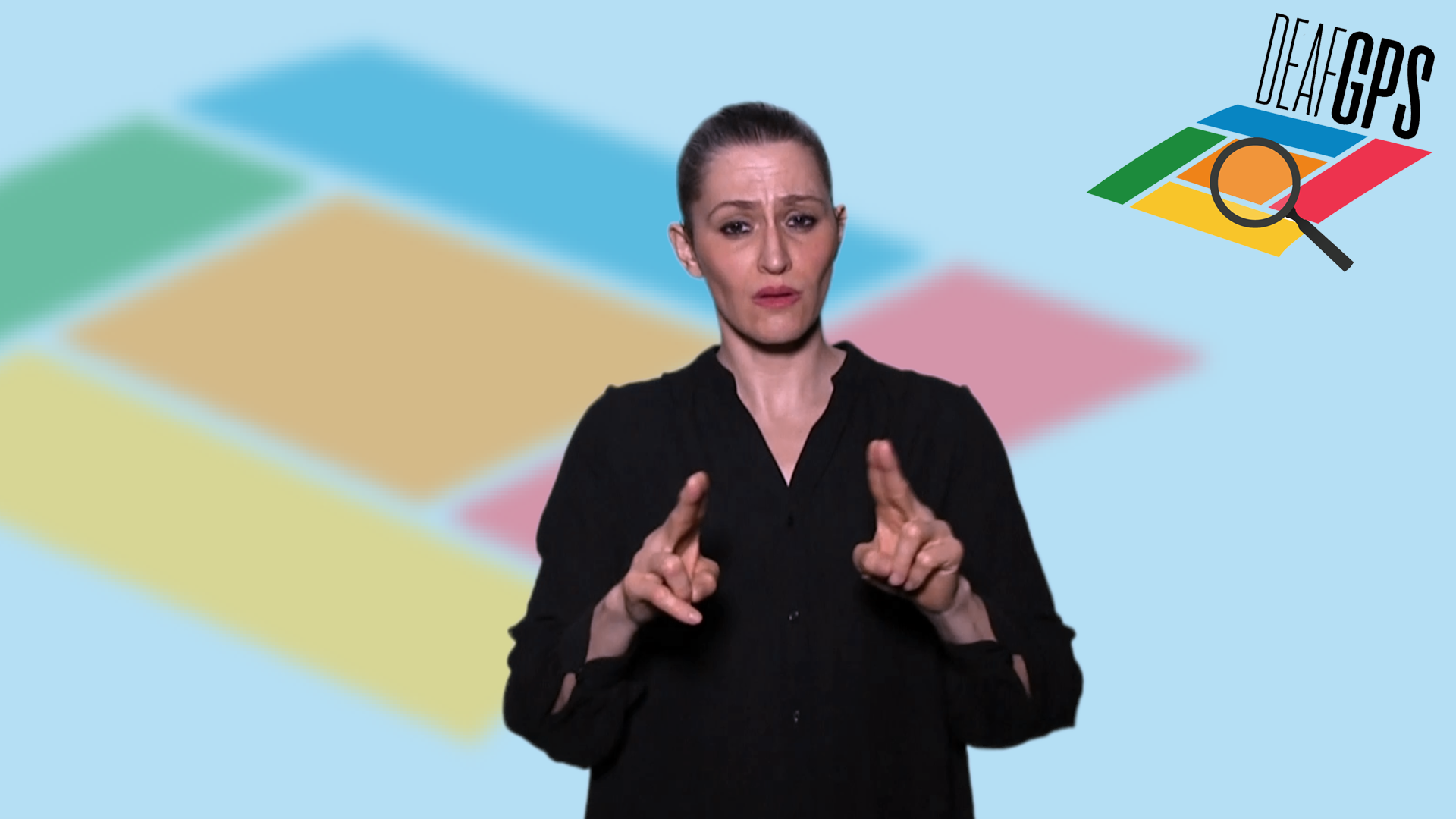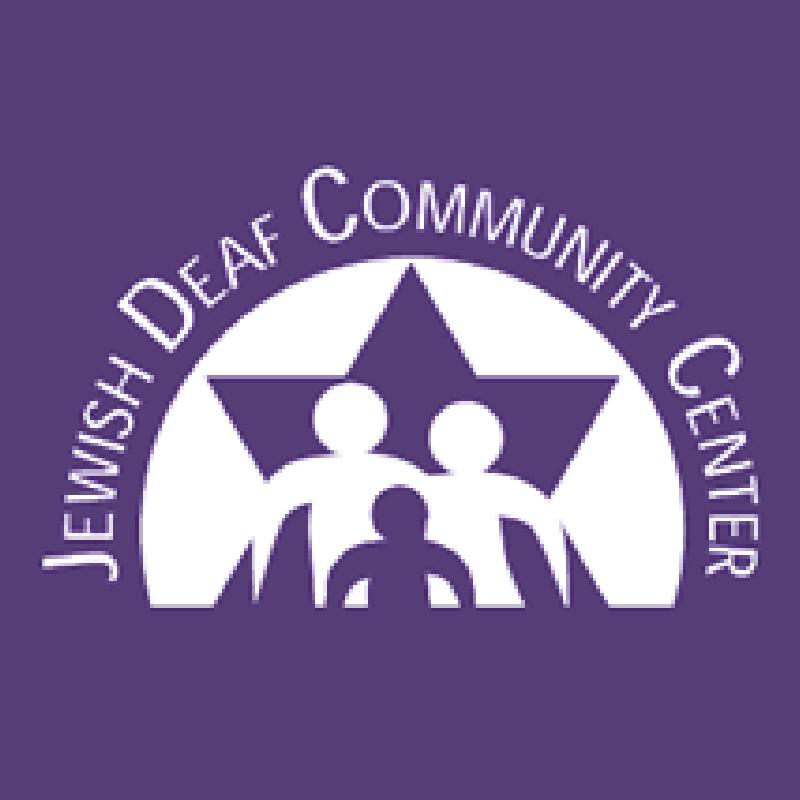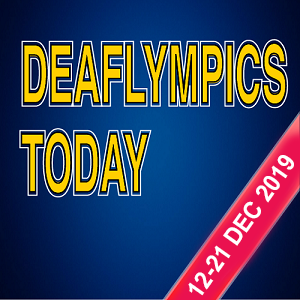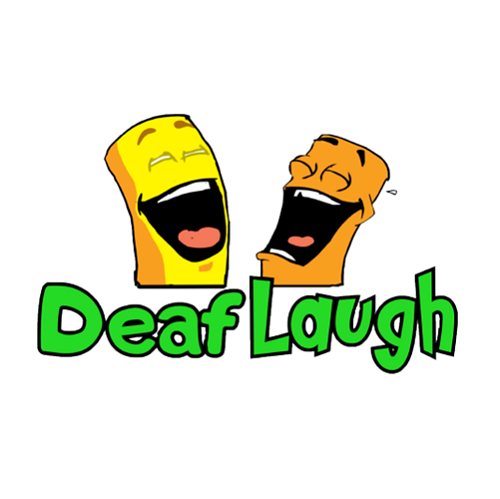« Deaf Seniors Catch Up With Hearing Seniors? | Main | Celebrate Deaf Awareness… this week! »
When You May Need a Certified Deaf Interpreter
By Deaf411 | August 30, 2011
 You are in court accused of a crime. The interpreter is interpreting dialogue between the prosecutor and a witness. The dialogue is in words that you may not be familiar with. As an ASL user, you may not understand or follow what is being discussed.
You are in court accused of a crime. The interpreter is interpreting dialogue between the prosecutor and a witness. The dialogue is in words that you may not be familiar with. As an ASL user, you may not understand or follow what is being discussed.
You just arrived at the emergency room after a bad car accident. You are confused, and in pain. The doctors and nurses try to ask you where the pain is. You sign sloppy and the interpreter doesn’t quite follow what you’re saying.
These are examples of situations where a Certified Deaf Interpreter could be utilized and of great help.
CDI
 Certified Deaf Interpreter (CDI) is a new and growing profession. Most CDI’s are deaf or hard of hearing and members of the deaf community who have undergone training and are certified by the Registry of Interpreters for the Deaf (RID).
Certified Deaf Interpreter (CDI) is a new and growing profession. Most CDI’s are deaf or hard of hearing and members of the deaf community who have undergone training and are certified by the Registry of Interpreters for the Deaf (RID).
In addition to excellent general communication skills and general interpreter training, the CDI often has specialized training or experience in use of gesture, mime, props, drawings, and other tools to enhance communication. They are attuned to the finer nuances of ASL and non-verbal communication.
A good CDI, who would already be from the community, has the ‘community roots’ that affect language. CDIs are not ‘better than’ the hearing interpreter but, rather, works together as a team to communicate to people at opposite ends of the communication bridge.
With an extensive knowledge and understanding of deafness, the deaf community, and Deaf culture along with solid communication skills, the CDI brings added expertise into both routinary and uniquely difficult interpreting situations.
 A Certified Deaf Interpreter can also be put to use when the deaf consumer’s communication mode is so unique that a regular hearing interpreter cannot be used. Such situations may involve individuals who:
A Certified Deaf Interpreter can also be put to use when the deaf consumer’s communication mode is so unique that a regular hearing interpreter cannot be used. Such situations may involve individuals who:
- Use non-standard signs or gestures such as those commonly referred to as “home signs” which are unique to a family
- Use a foreign sign language
- Have minimal or limited communication skills
- Are deaf-blind or deaf with limited vision
- Use signs particular to a given region, ethnic or age group
- Have characteristics reflective of Deaf Culture not familiar to hearing interpreters.
The CDI Community
 There is currently 112 Certified Deaf Interpreters registered through RID across the country although not in every state.
There is currently 112 Certified Deaf Interpreters registered through RID across the country although not in every state.
The benefits of using a Certified Deaf Interpreter are optimal understanding by all parties, efficient use of time and resources, clarification of language and/or cultural confusion and misunderstanding(s), and arrival at a clear conclusion in the interpreting situation.
One CDI states, “The most important thing is to get rid of the negative stigma of ‘those’ who need a CDI…There is no ‘those’. A CDI is a resource, a peer, a strategy, a tool that is available to EVERYONE!” We need to educate the Deaf and Hard of Hearing community on the use of CDI’s as an additional tool for communicating in sensitive environments such as medical and legal situations.”
Confidentiality
 As many CDIs are members of the community, it is especially crucial that they keep things confidential, like other interpreters. The deaf community needs to realize and respect the role of CDIs, and not try to get information out of them.
As many CDIs are members of the community, it is especially crucial that they keep things confidential, like other interpreters. The deaf community needs to realize and respect the role of CDIs, and not try to get information out of them.
“Even professional Deaf people who work in jobs that also require confidentiality think they are excepted from that rule,” one CDI said, “and say they will keep it confidential between the CDI and themselves. This is not how it works.”
When asked about their best experiences working as a CDI, many reported it is the “light bulb” moments where the client “gets it” and is empowered. Just being able to get the message across and convey their thoughts clearly makes their job all the more important.
Providing optimal means of communication between deaf or hard of hearing and hearing people is the goal of CDIs and as use of the Certified Deaf Interpreter increases, more deaf or hard of hearing people need to be trained to meet this growing demand.
~~~~~~~~~~~~~~~~~~~~~~~~~~~~~~~~~~~~~~~~~~~~~~~~~~
This report appeared in the August 2011 edition of Deaf411 eNewsletter, an electronic report which covers a different topic or theme in each month.
List of past issues.
SIGN UP to receive Deaf411 eNewsletter every month, it’s free.
~~~~~~~~~~~~~~~~~~~~~~~~~~~~~~~~~~~~~~~~~~~~~~~~~~
DISCLAIMER: If you have any questions about any information in the Deaf411 eNewsletter, please contact the company or organization listed in the article, announcement, or advertisement. DEAF411, as an information distribution service, makes every effort to ensure accuracy of information presented but cannot accept responsibility for completeness or suitability of information in the announcement.
Topics: Deaf411 eNewsletter | No Comments »
Comments are closed.
